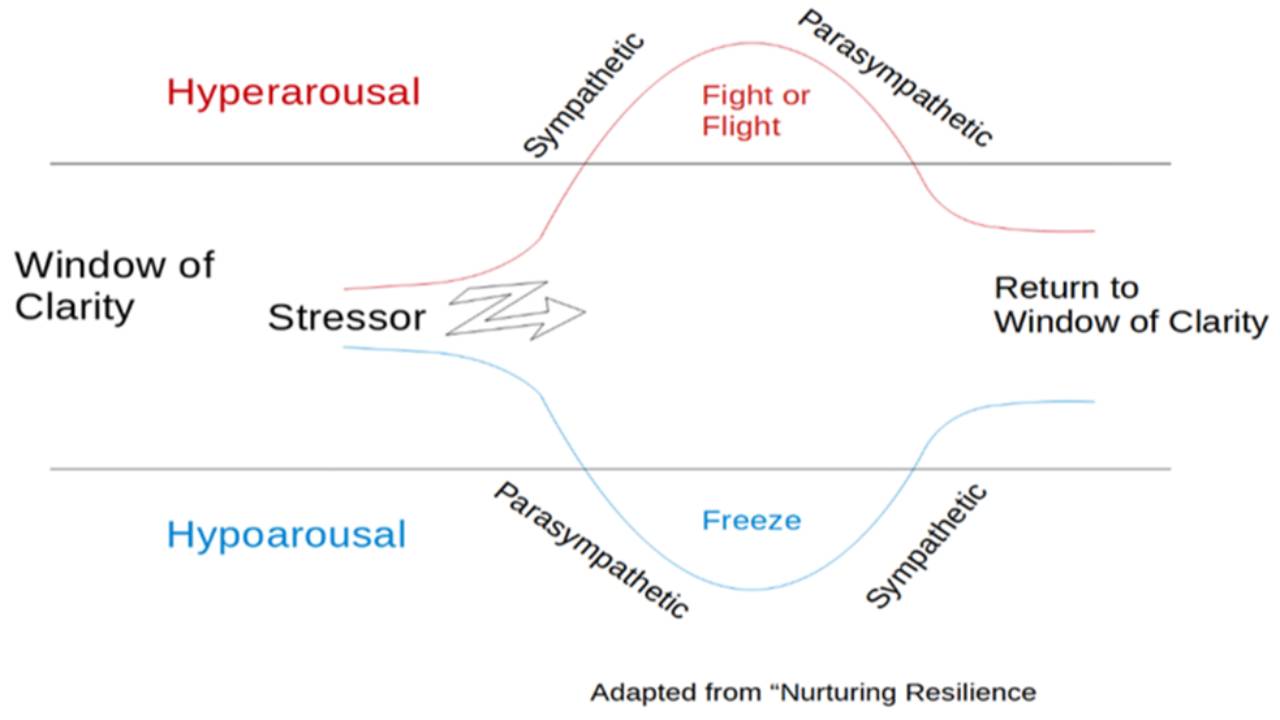Ask Ron Besuijen - How PTS affects work relationships?
Mar 09, 2025
We ask Ron:
How PTS affects work relationships?
Ron's Response:
Have you ever wondered why gaining the cooperation of operators can be difficult when introducing new procedures or control system changes? You might feel like you're being interrogated in a high-pressure environment. The truth is, the operator may have been involved in a previous incident that ended poorly, where they were asked, “Why did you let this happen?” In some cases, their coworkers might have even been fired due to their involvement in that incident. These past experiences can create a significant emotional barrier that impacts their willingness to engage.
The Window of Clarity: Stress and Cognitive Function
The Window of Clarity diagram (below) illustrates what happens during high-stress situations. After a traumatic event, the nervous system typically returns to a state within the "window of clarity." However, after experiencing Post-Traumatic Stress, it may take weeks or even months to return to baseline, or sometimes, the stress response may never fully resolve—leading to Post-Traumatic Stress Disorder (PTSD).
During these times, an individual’s cognitive functions can be impaired, which can manifest as either Hyperarousal (fight or flight response) or Hypoarousal (numbing, disengagement). When an operator is in either of these states, their ability to make clear decisions may be compromised, which could affect their responses to new proposals or changes in the workplace.
Impact of PTS on Workplace Dynamics
Imagine walking into a control room where the operator is already on edge due to past traumatic experiences. This heightened state of stress can cause them to react in different ways:
Hyperarousal: The individual may be in a fight-or-flight state, overreacting to even minor stressors, making it harder to engage in a productive conversation.
Hypoarousal: Alternatively, they may be emotionally numb or indifferent, which can make them less likely to ask critical questions or point out potential risks in your proposed changes.
Regardless of the emotional state they’re in, you need to be prepared for challenging questions. Operators are responsible for ensuring the process runs smoothly, and they will look for weaknesses or gaps in any proposed changes. If you find yourself stumped by their questions, it's a sign you haven’t done your homework.
Tip: Before entering the control room, use Gary Klein’s Pre-mortem technique. This involves assuming your proposal will fail and identifying all the possible reasons why. Doing this will help you be better prepared. This will also foster trust and collaboration. After presenting your reasoning, ask them if they can think of anything you may have missed. This will show the operators that you value their input
If you recognize any of these symptoms in yourself or others, it’s important to seek help. Early intervention and professional support can make a significant difference in managing PTS. For those in high-stress environments, understanding how to handle critical situations with limited time and pressure can reduce the likelihood of PTS symptoms. Stay tuned for future ProseraPods, where I’ll share insights on managing such events and improving decision-making in challenging circumstances.
Stay connected with news and updates!
Join our mailing list to receive the latest news and updates from our team.
We hate SPAM. We will never sell your information, for any reason.

